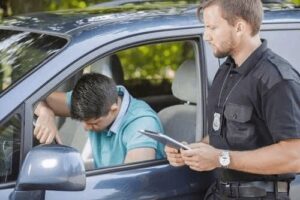Sobriety checkpoints are an essential tool in combating drunk driving and saving lives. In Texas, where drunk driving is a significant problem, these checkpoints are particularly crucial. Sobriety checkpoints are roadside locations where law enforcement officers stop and assess drivers for signs of impairment. These checkpoints are usually set up on weekends, holidays, and during special events when drunk driving is most likely to occur.
The Importance of Sobriety Checkpoints in Texas
According to the Texas Department of Transportation, drunk driving is a leading cause of traffic accidents and fatalities in the state. In 2019 alone, there were 940 alcohol-related crashes resulting in 894 fatalities and 2,610 serious injuries. These numbers are staggering and show the need for preventative measures like sobriety checkpoints
Sobriety checkpoints are designed to deter drunk driving by increasing the risk of getting caught. Drivers who know there is a possibility of a sobriety checkpoint ahead are less likely to drink and drive. In addition to deterring drunk driving, sobriety checkpoints help law enforcement identify and remove impaired drivers from the road, potentially preventing accidents and saving lives.
The Effectiveness of Sobriety Checkpoints
Research shows that sobriety checkpoints are an effective way to reduce drunk driving. According to the National Highway Traffic Safety Administration (NHTSA), sobriety checkpoints can reduce alcohol-related crashes by up to 20%. Additionally, the Centers for Disease Control and Prevention (CDC) estimates that sobriety checkpoints save one life for every 214 drivers assessed.
Sobriety checkpoints also provide an opportunity for law enforcement to educate drivers on the dangers of drunk driving and offer information on alternative transportation options. This education can have a significant impact on behavior and can lead to fewer drunk driving incidents in the future.
The Legality of Sobriety Checkpoints
In Texas, sobriety checkpoints are legal. However, they must meet specific guidelines to be constitutional. For example, they must be conducted in a manner that minimizes intrusion and inconvenience to drivers, and law enforcement must have a specific plan in place for stopping vehicles.
In addition to being legal and effective, sobriety checkpoints are also cost-effective. According to the CDC, the cost of a sobriety checkpoint is approximately $10,000, which is relatively low compared to the costs of a single alcohol-related crash, which can exceed $500,000.
Moreover, sobriety checkpoints not only reduce the number of drunk drivers on the road, but they also deter other forms of criminal activity, such as drug trafficking and other illegal activity that may be associated with impaired driving.
It’s essential to note that sobriety checkpoints are not intended to violate anyone’s rights or invade their privacy. Instead, they are designed to help protect the public and reduce the number of drunk drivers on the road. Drivers who have not consumed alcohol should not be concerned about being stopped at a sobriety checkpoint, as the process typically only takes a few seconds and is non-intrusive.
Sobriety checkpoints are a vital tool in reducing drunk driving in Texas. They are legal, cost-effective, and proven to be effective in preventing alcohol-related accidents and fatalities. By supporting sobriety checkpoints and making responsible decisions, we can all play a role in making our roads safer and saving lives.
As a criminal defense law firm, we at Willumsen Law Firm, P.C. understand the importance of sobriety checkpoints in Texas and the role they play in reducing drunk driving accidents and fatalities. We believe that sobriety checkpoints are a crucial tool for law enforcement to detect and deter impaired driving, and we support their use as a legal and effective means of protecting the public.
At Willumsen Law Firm, P.C., we can help individuals who have been charged with DUI or DWI offenses that may have arisen from sobriety checkpoint stops. We can use our knowledge and experience to build a strong defense for our clients, negotiate with prosecutors, and represent our clients in court if necessary. We are committed to protecting our clients’ legal rights and achieving the best possible outcome for their case.
We believe that by supporting sobriety checkpoints and making responsible decisions, we can all play a role in making our roads safer and preventing alcohol-related accidents and fatalities.
